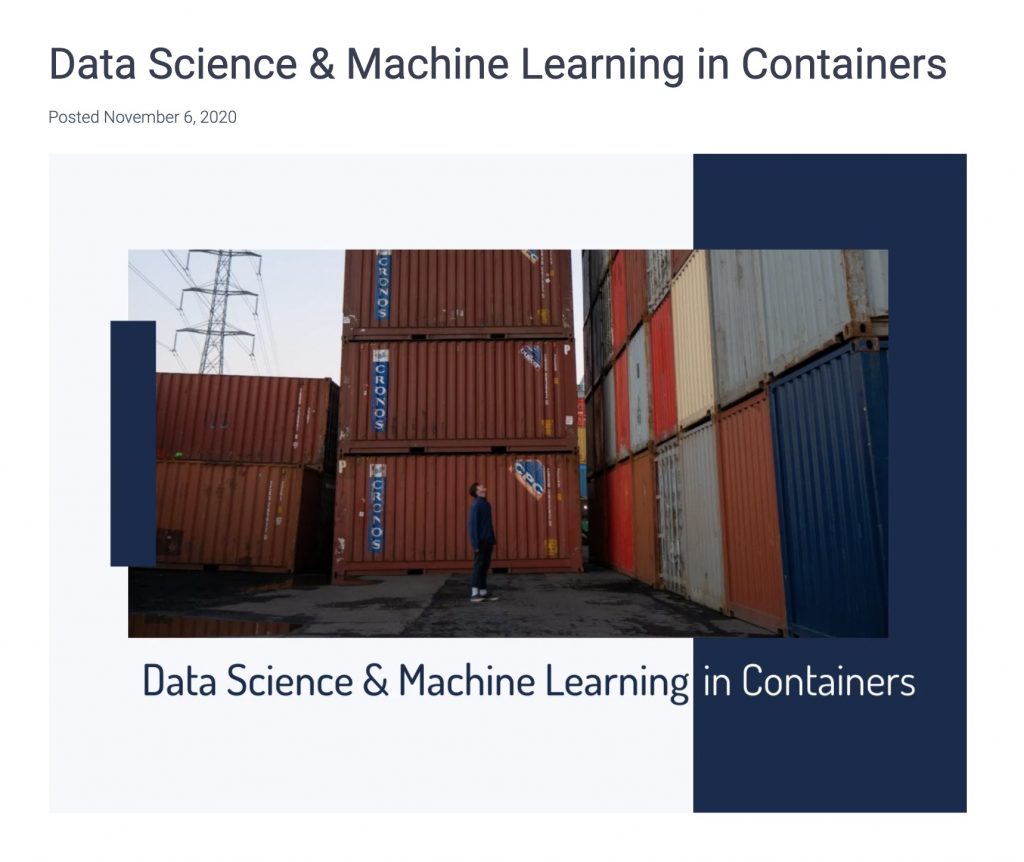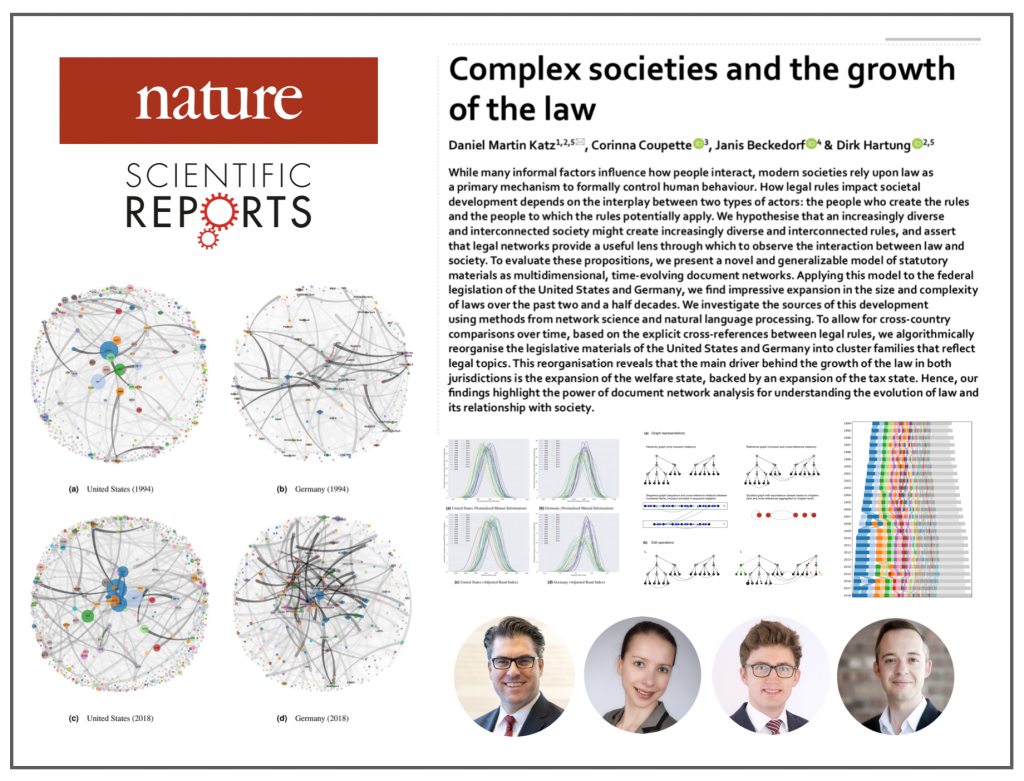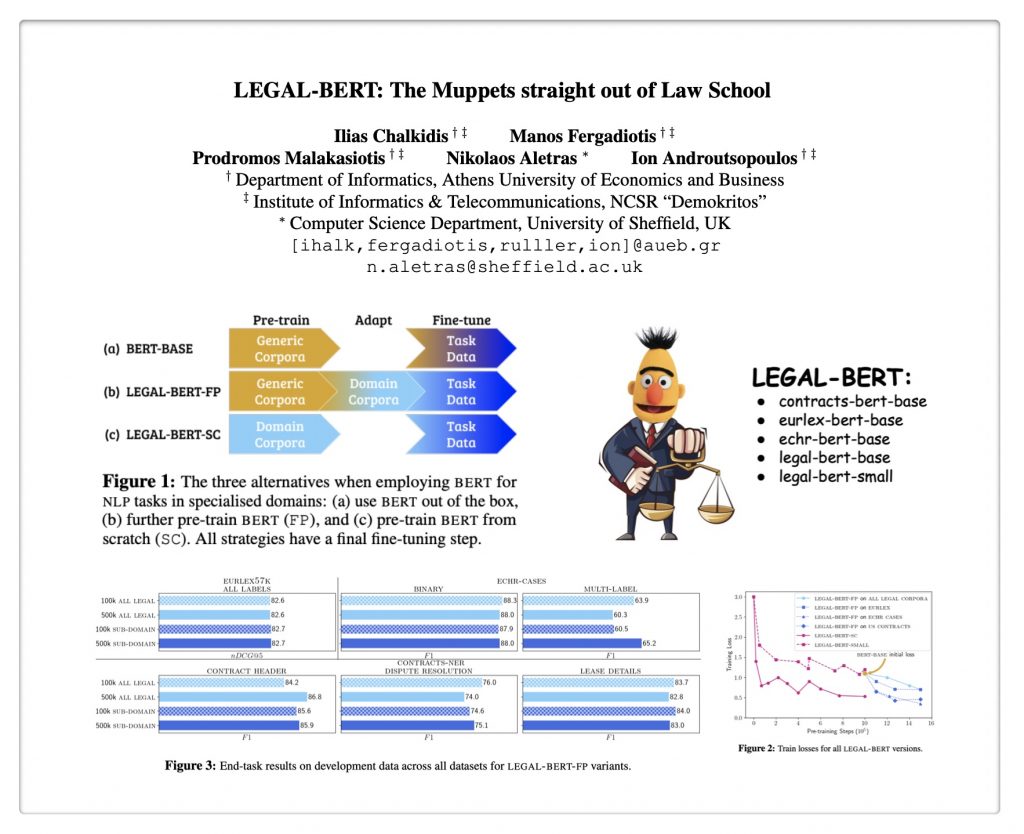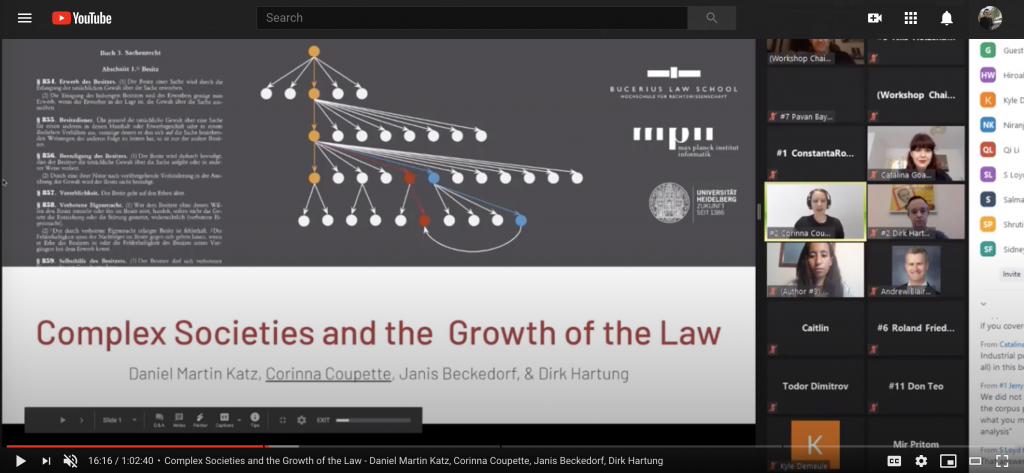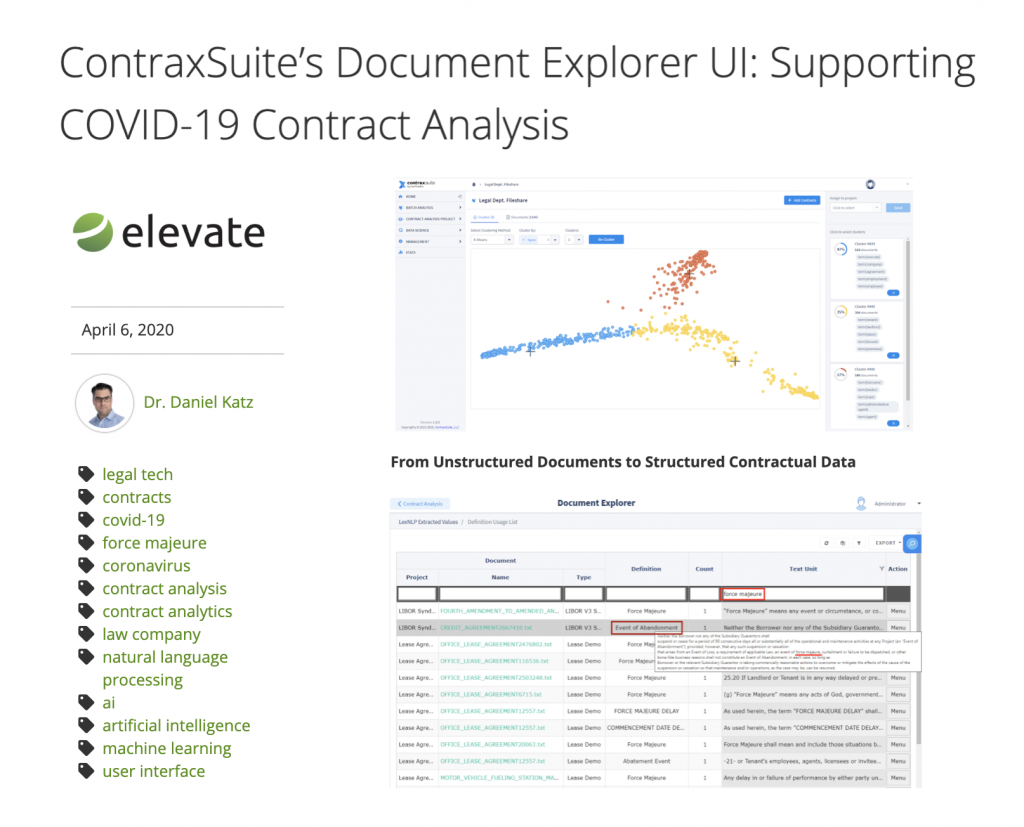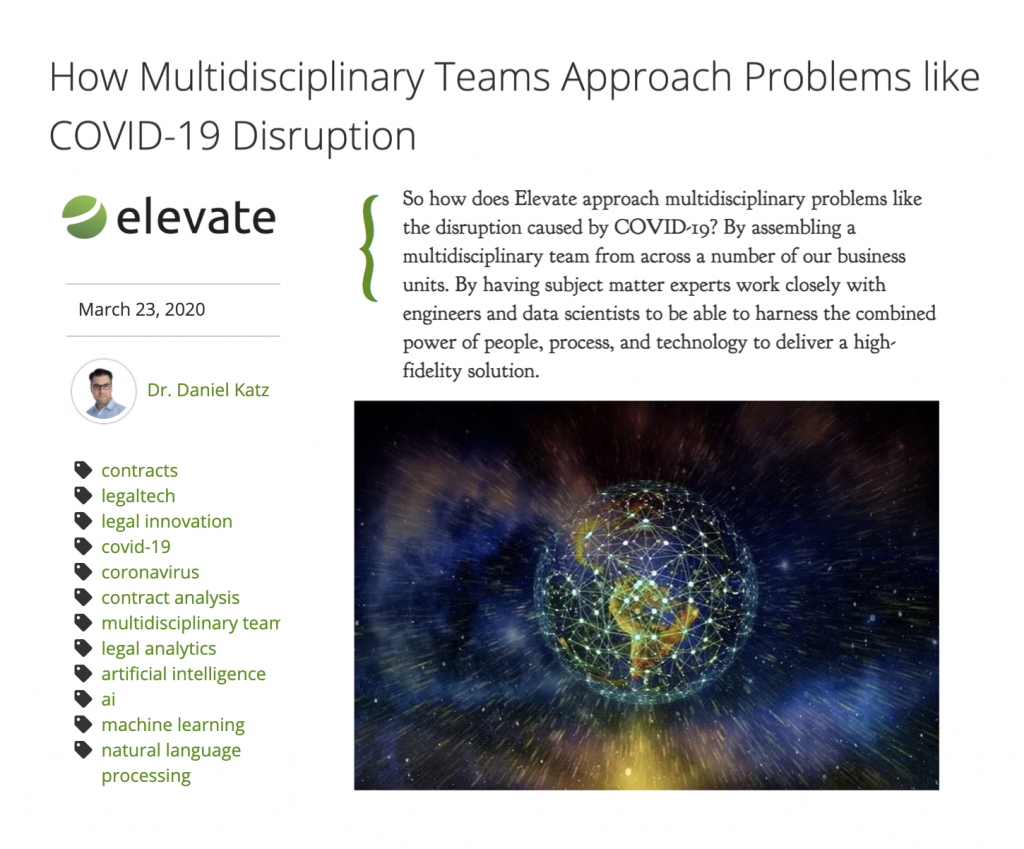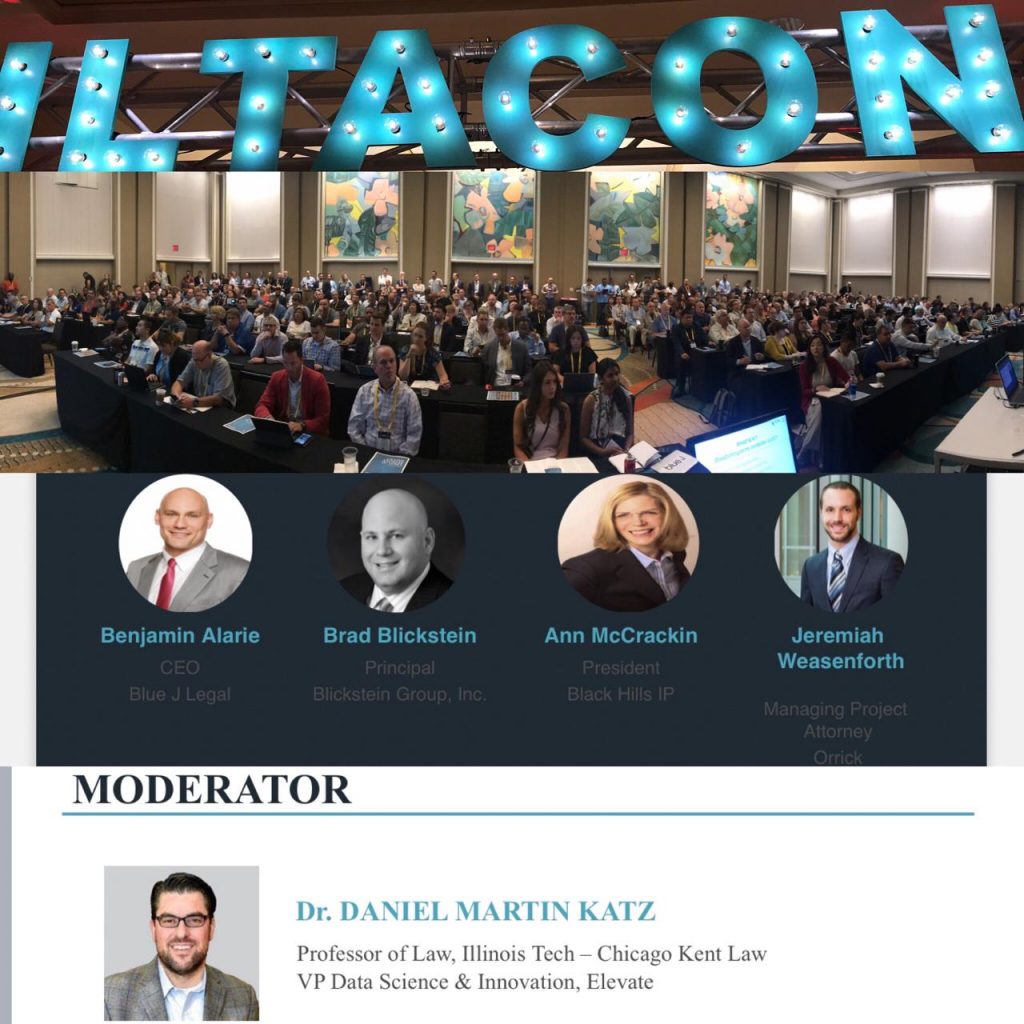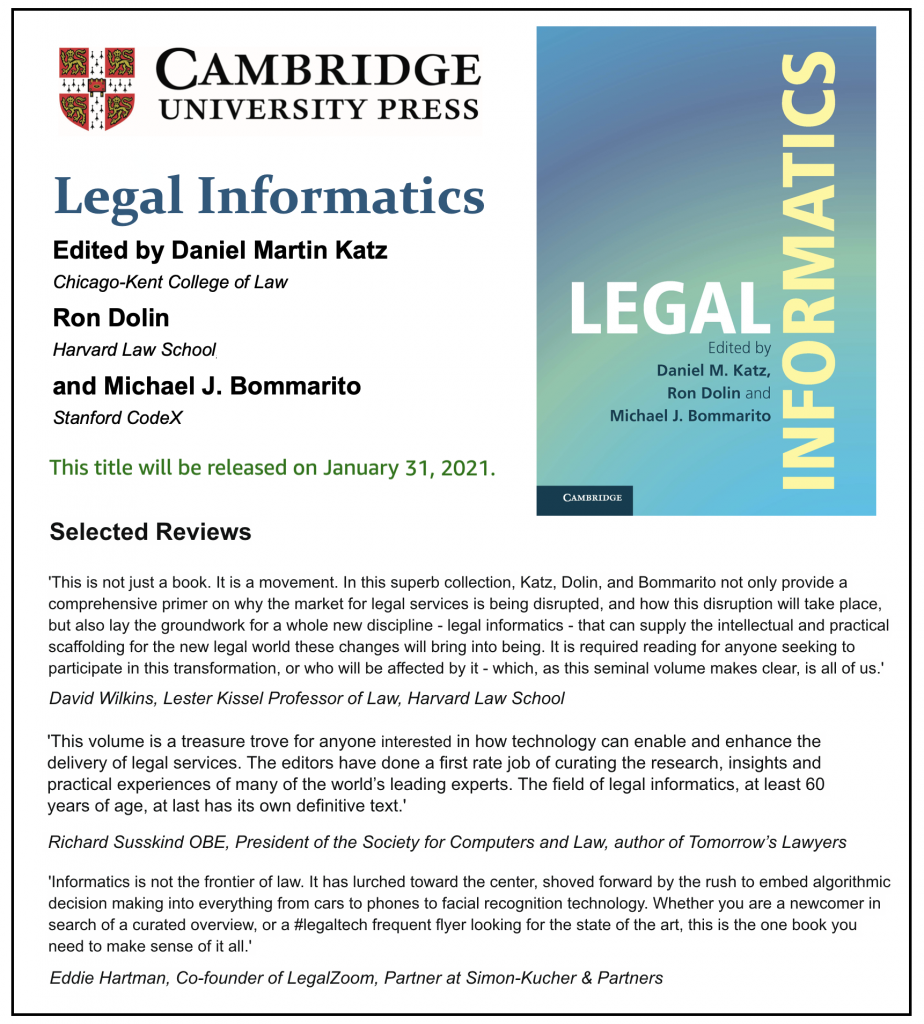
We are very pleased to announce pre-orders for “Legal Informatics” (Cambridge University Press – (Coming in early 2021) are now available on Amazon / Cambridge. Our book is designed to be an introduction to the academic discipline underlying the economic and technological transformation of the legal industry. Legal Informatics features contributions from more than two dozen academic and industry experts, chapters cover the history and principles of legal informatics and background technical concepts – including natural language processing and distributed ledger technology. The volume also presents real-world case studies that offer important insights into document review, due diligence, compliance, case prediction, billing, negotiation and settlement, contracting, patent management, legal research, and online dispute resolution. It is hardbound book ~600 pages in length.
#LegalInformatics #LegalTech #LegalInnovation #MachineLearning #NetworkScience #NLP #LegalScience

